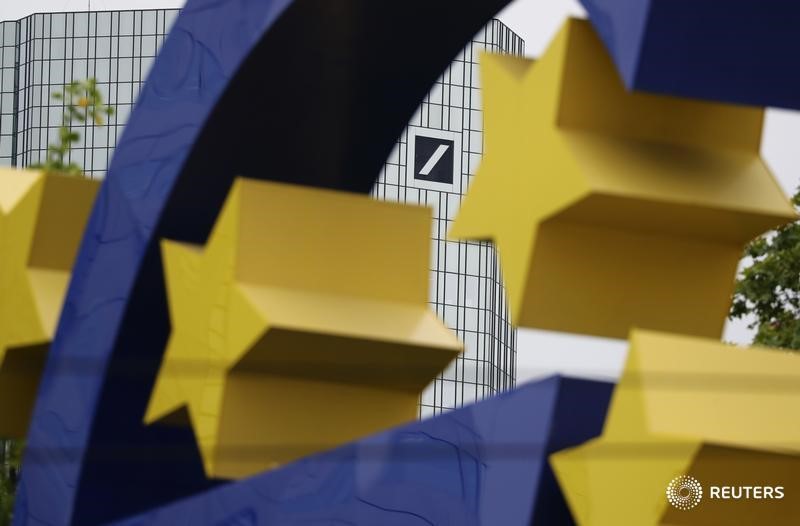By Saikat Chatterjee
LONDON (Reuters) - Conventional wisdom has it that as more participants join a market, it leads to better price discovery and therefore greater efficiency.
Not so, according to a study of the world's foreign exchange markets by Roel Oomen, global co-head of electronic FX spot trading at Deutsche Bank (DE:DBKGn), one of the world's top FX trading banks.
Instead, adding more liquidity providers or traders to a platform is ultimately counterproductive for clients, he said in an interview.
Banks' share of the foreign exchange market -- the world's biggest financial market, with more than $5 trillion changing hands daily -- has fallen in recent years as trading platforms have proliferated.
New technology has made it easier for institutional players and retail punters alike to trade at prices previously only available to the major banks. It is now possible, for example, to get the best prices from multiple players in a single order book, a process known as aggregation.
While some of the world's biggest banks have their own trading platforms for clients, such as Citibank's Velocity, they also offer liquidity on some external trading platforms.
But Oomen's study found that adding more than a certain number of liquidity providers to a platform is unlikely to benefit the client and can result in worse pricing over time.
"This is because it appears to increase the probability of 'winner's curse', where dealers end up losing money on deals because they have to submit overly aggressive pricing to win transactions," he said.
They subsequently gave less competitive prices than they might ordinarily have offered to shield themselves from future potential losses, leading to a drop in liquidity.
The study has implications for trading and hedging strategies used by companies and large funds, which increasingly use such technology offered by banks and non-bank participants.
The top five banks' share of FX trading fell to less than half in 2016 from a peak of 60 percent in 2013, according to the latest triennial survey of the market, published by the Bank for International Settlements (BIS) last year.
That reflects lower participation by big hedge funds as currency volatility has declined, hitting banks which trade on their behalf.
The difficulty of generating a steady income over long periods from carry trades, in which an investor borrows in a low-yielding currency to buy a higher yielding one, while interest rates are low has also sapped trading appetite.

Daily volumes on non-bank trading platforms such as XTX Markets, Virtu Financial (O:VIRT) and Citadel Securities can nowadays run into billions of dollars, according to BIS analysts.